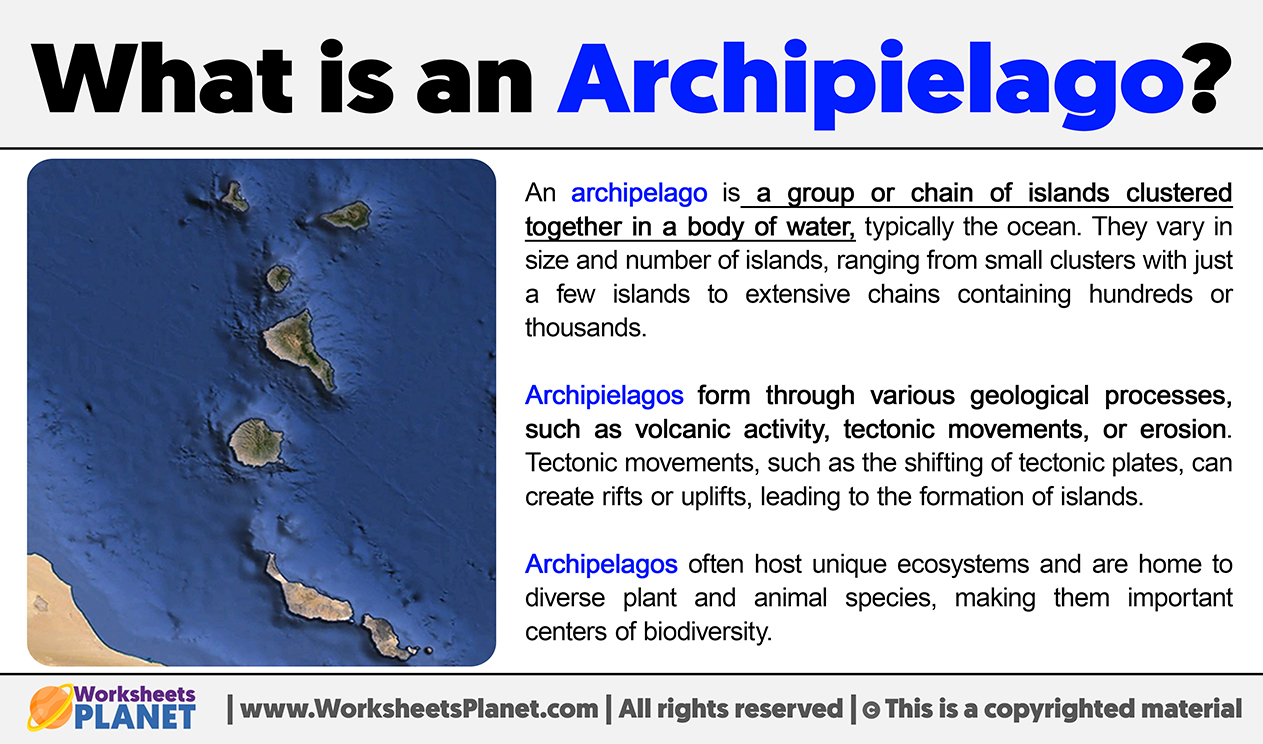An archipelago is a group or chain of islands clustered together in a body of water, typically the ocean. They vary in size and number of islands, ranging from small clusters with just a few islands to extensive chains containing hundreds or thousands.
Archipielagos form through various geological processes, such as volcanic activity, tectonic movements, or erosion. Tectonic movements, such as the shifting of tectonic plates, can create rifts or uplifts, leading to the formation of islands.
Archipelagos often host unique ecosystems and are home to diverse plant and animal species, making them important centers of biodiversity.


